|
Books Should Be Free Loyal Books Free Public Domain Audiobooks & eBook Downloads |
|
|
Books Should Be Free Loyal Books Free Public Domain Audiobooks & eBook Downloads |
|
History Books |
|---|
|
Book type:
Sort by:
View by:
|
By: G. K. Chesterton | |
|---|---|
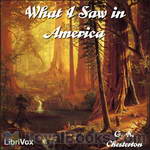 What I Saw in America
What I Saw in America
“Let me begin my American impressions with two impressions I had before I went to America. One was an incident and the other an idea; and when taken together they illustrate the attitude I mean. The first principle is that nobody should be ashamed of thinking a thing funny because it is foreign; the second is that he should be ashamed of thinking it wrong because it is funny.” (Gilbert Keith Chesterton) | |
 The New Jerusalem
The New Jerusalem
“On the road to Cairo one may see twenty groups exactly like that of the Holy Family in the pictures of the Flight into Egypt; with only one difference. The man is riding on the ass.” “The real mistake of the Muslims is something much more modern in its application than any particular passing persecution of Christians as such. It lay in the very fact that they did think they had a simpler and saner sort of Christianity, as do many modern Christians. They thought it could be made universal merely by being made uninteresting... | |
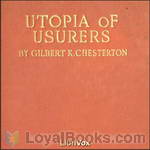 A Utopia of Usurers
A Utopia of Usurers
“Now I have said again and again (and I shall continue to say again and again on all the most inappropriate occasions) that we must hit Capitalism, and hit it hard, for the plain and definite reason that it is growing stronger. Most of the excuses which serve the capitalists as masks are, of course, the excuses of hypocrites. They lie when they claim philanthropy; they no more feel any particular love of men than Albu felt an affection for Chinamen. They lie when they say they have reached their position through their own organising ability... | |
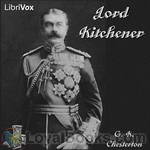 Lord Kitchener
Lord Kitchener
“The paradox of all this part of his life lies in this–that, destined as he was to be the greatest enemy of Mahomedanism, he was quite exceptionally a friend of Mahomedans.” | |
 The Victorian Age in Literature
The Victorian Age in Literature
| |
By: G. Lenotre (1855-1935) | |
|---|---|
 The House of the Combrays
The House of the Combrays
| |
By: G. Lowes (Goldsworthy Lowes) Dickinson (1862-1932) | |
|---|---|
 Appearances Being Notes of Travel
Appearances Being Notes of Travel
| |
 A Modern Symposium
A Modern Symposium
| |
By: G. MacLaren (George MacLaren) Brydon (1875-1963) | |
|---|---|
 Religious Life of Virginia in the Seventeenth Century The Faith of Our Fathers
Religious Life of Virginia in the Seventeenth Century The Faith of Our Fathers
| |
By: G. Melvin Herndon | |
|---|---|
 Tobacco in Colonial Virginia "The Sovereign Remedy"
Tobacco in Colonial Virginia "The Sovereign Remedy"
| |
By: G. P. Cuttriss | |
|---|---|
 Over the Top With the Third Australian Division
Over the Top With the Third Australian Division
| |
By: G. P. R. (George Payne Rainsford) James (1801-1860) | |
|---|---|
 The King's Highway
The King's Highway
| |
By: G. R. (George Robert) Gleig (1796-1888) | |
|---|---|
 Germany, Bohemia, and Hungary, Visited in 1837. Vol. II
Germany, Bohemia, and Hungary, Visited in 1837. Vol. II
| |
 The Campaigns of the British Army at Washington and New Orleans 1814-1815
The Campaigns of the British Army at Washington and New Orleans 1814-1815
| |
By: G. W. (George Warrington) Steevens (1869-1900) | |
|---|---|
 From Capetown to Ladysmith An Unfinished Record of the South African War
From Capetown to Ladysmith An Unfinished Record of the South African War
| |
By: G. Whitfield Ray | |
|---|---|
 Through Five Republics on Horseback, Being an Account of Many Wanderings in South America
Through Five Republics on Horseback, Being an Account of Many Wanderings in South America
| |
By: G. Wyman (George Wyman) Bury (1874-) | |
|---|---|
 Pan-Islam
Pan-Islam
| |
By: Gaius Julius Caesar | |
|---|---|
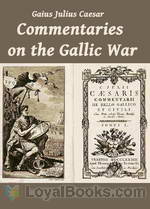 Commentaries on the Gallic War
Commentaries on the Gallic War
Commentarii de Bello Gallico (English: Commentaries on the Gallic War) is Julius Caesar's firsthand account of the Gallic Wars, written as a third-person narrative. In it Caesar describes the battles and intrigues that took place in the nine years he spent fighting local armies in Gaul that opposed Roman domination.The work has been a mainstay in the teaching of Latin to schoolchildren, its simple, direct prose lending itself to that purpose. It begins with the frequently quoted phrase "Gallia est omnis divisa in partes tres", sometimes quoted as "Omnia Gallia in tres partes divisa est", meaning "All Gaul is divided into three parts". | |
By: Gaius Sallustius Crispus (Sallust) (86-34 BC) | |
|---|---|
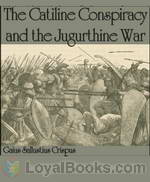 The Catiline Conspiracy and the Jugurthine War
The Catiline Conspiracy and the Jugurthine War
The Catiline Conspiracy and The Jugurthine War are the two separate surviving works of the historian commonly known as “Sallust”. Nearly contemporary to the events he describes, he is supposed to have been a retired officer of Caesar’s army. “Catiline” contains the history of the memorable year 63. Sallust describes Catiline as the deliberate foe of law, order and morality (although party politics may have influenced his view). Still, Sallust does recount Catiline’s noble traits, including his courage in the final battle... | |
By: Gaius Suetonius Tranquillus (c75 - c160 AD) | |
|---|---|
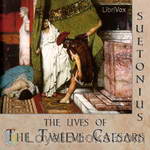 The Lives of the Twelve Caesars
The Lives of the Twelve Caesars
The Twelve Caesars is a set of twelve biographies of Julius Caesar and the first 11 emperors of the Roman Empire. The work was written in 121 during the reign of the emperor Hadrian, while Suetonius was Hadrian’s personal secretary. On the Life of the Caesars concentrates on the acts and personalities of the Julio-Claudians and their immediate successors. Together with Tacitus’ Annals, this work is a major source for the historical details in Robert Graves’ novels “I Claudius” and “Claudius the God”. | |
By: Galen Clark (1814-1910) | |
|---|---|
 Indians of the Yosemite Valley and Vicinity Their History, Customs and Traditions
Indians of the Yosemite Valley and Vicinity Their History, Customs and Traditions
| |
By: Garrick Mallery (1831-1894) | |
|---|---|
 Sign Language Among North American Indians Compared With That Among Other Peoples
Sign Language Among North American Indians Compared With That Among Other Peoples
| |
By: Gaston Derreaux | |
|---|---|
 The Sun King
The Sun King
| |
By: Gaston Maspero (1846-1916) | |
|---|---|
 History Of Egypt, Chaldea, Syria, Babylonia, and Assyria
History Of Egypt, Chaldea, Syria, Babylonia, and Assyria
History Of Egypt, Chaldæa, Syria, Babylonia, and Assyria is the masterwork of one of the fathers of modern egyptology. This work, in twelve volumes, was translated from the French original, “Histoire ancienne des peuples de l’Orient classique” and published in 1903-1904. Maspero was a largely self-taught master of hieroglyphic translation. In November 1880, he was placed at the head of a French archeological mission, which developed later into the Institut Français d’Archéologie Orientale... | |
 Manual of Egyptian Archaeology and Guide to the Study of Antiquities in Egypt
Manual of Egyptian Archaeology and Guide to the Study of Antiquities in Egypt
A handbook of Egyptian archaeology, issued by the British Museum, considered suitable for British tourists travelling to Egypt in the 19th Century. (Introduction by Timothy Ferguson) | |
By: Gay Montague Moore | |
|---|---|
 Seaport in Virginia George Washington's Alexandria
Seaport in Virginia George Washington's Alexandria
| |
By: Gelett Burgess (1866-1951) | |
|---|---|
 The Rubaiyat of Omar Cayenne
The Rubaiyat of Omar Cayenne
| |
By: Gen. George A. Custer (1839-1876) | |
|---|---|
 My Life on the Plains
My Life on the Plains
George Armstrong Custer (December 5, 1839 – June 25, 1876), one of the most mythologized figures in American history, was an United States Army officer and cavalry commander in the American Civil War and the Indian Wars. He eventually met his fate in the battle of Little Big Horn in one of the most notable defeats of American armed forces.My Life on the Plains is an autobiographical first-hand account of the Indian Wars of 1867-1869, detailing the winter campaign of 1868 in which Custer led the 7th US cavalry against the Cheyenne Indians... | |
By: General Sir John Miller Adye (1819-1900) | |
|---|---|
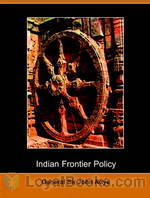 Indian Frontier Policy, an Historical Sketch
Indian Frontier Policy, an Historical Sketch
“The subject of our policy on the North-West frontier of India is one of great importance, as affecting the general welfare of our Eastern Empire, and is specially interesting at the present time, when military operations on a considerable scale are being conducted against a combination of the independent tribes along the frontier. It must be understood that the present condition of affairs is no mere sudden outbreak on the part of our turbulent neighbours. Its causes lie far deeper, and are the consequences of events in bygone years”. (From the author’s Preface, 1897). | |
By: Geneve L. A. Shaffer | |
|---|---|
 The Log of the Empire State
The Log of the Empire State
| |
By: Geoffrey Chaucer | |
|---|---|
 Chaucer Storybook
Chaucer Storybook
Geoffrey Chaucer's classic "Canterbury Tales" has here been rendered into clear and contemporary English prose. These classic stories are now available to those who would like to read them without struggling through Middle English poetry. The character and humour of The Wife of Bath and other larger-than-life people created by Chaucer are now accessible to a wider audience, including children. Please note that the original Canterbury Tales includes 24 stories, of which 11 are reproduced here. - Summary by Beth Thomas | |
By: Geoffrey H. Malins (1887-1943) | |
|---|---|
 How I Filmed the War
How I Filmed the War
An account of World War I and the experience of filming it by an early cinematographer (and, after the war, successful director) who was there. | |
By: Geoffrey Keith Rose (1889-) | |
|---|---|
 The Story of the 2/4th Oxfordshire and Buckinghamshire Light Infantry
The Story of the 2/4th Oxfordshire and Buckinghamshire Light Infantry
| |
By: Georg Ebers (1837-1898) | |
|---|---|
 Arachne
Arachne
Ledscha, living in ancient Egypt, has lost her betrothed and all hope of love. But the gods see otherwise. She now loves a Greek sculptor, who only wanted her for a model, but even that will not happen. She has been replaced by another woman for the statue of Arachne. Who do the gods see her with? Is it the Greek, or someone else? This work is the last written and published in German by Georg Ebers before he died in 1898. He wrote many novels set it ancient Egypt, which sparked the general interest in and popularity of Egyptology that still thrives today. This book was translated into English also in 1898. | |
 An Egyptian Princess
An Egyptian Princess
| |
 Uarda : a Romance of Ancient Egypt
Uarda : a Romance of Ancient Egypt
| |
 The Sisters
The Sisters
| |
 The Emperor
The Emperor
| |
 Serapis
Serapis
| |
 Joshua
Joshua
Hosea is a commander in Pharaoh's army... and a Hebrew. As he returns home from war, he finds that there has been a great pestilence in Egypt and his people are being blamed for it. Hosea receives a message from his father to follow his people to Succoth, but he is hesitant to give up his position in the army. Someone else also sends a message, containing a new name for him from God. There is much intrigue in this retelling of the Exodus, both among the Hebrews and in the court of Pharaoh. | |
 A Thorny Path
A Thorny Path
| |
 The Burgomaster's Wife
The Burgomaster's Wife
| |
 Barbara Blomberg
Barbara Blomberg
| |
 A Word, Only a Word
A Word, Only a Word
| |
By: Georg Jellinek (1851-1911) | |
|---|---|
 The Declaration of the Rights of Man and of Citizens
The Declaration of the Rights of Man and of Citizens
| |
By: Georg Wilhelm Friedrich Hegel (1770-1831) | |
|---|---|
 Introduction to The Philosophy of History
Introduction to The Philosophy of History
The introduction to Hegel’s lectures on the philosophy of world history is often used to introduce students to Hegel’s philosophy, in part because Hegel’s sometimes difficult style is muted in the lectures, and he discourses on accessible themes such as world events in order to explain his philosophy. Much of the work is spent defining and characterizing Geist or spirit. Geist is similar to the culture of people, and is constantly reworking itself to keep up with the changes of society, while at the same time working to produce those changes through what Hegel called the “cunning of reason”... | |
By: George A. (George Alfred) Lawrence (1827-1876) | |
|---|---|
 Border and Bastille
Border and Bastille
| |
By: George A. Birmingham (1865-1950) | |
|---|---|
 The Northern Iron
The Northern Iron
| |
 A Padre in France
A Padre in France
| |
By: George A. Miller (1868-1961) | |
|---|---|
 Prowling About Panama
Prowling About Panama
In 1903, Panama became a brand new state in Central America by seceding from Colombia in order to facilitate the construction of the Panama Canal, which was finished in 1914. This fledgling nation was home to the oldest inhabited European settlement on the American continent, a rich indigenous culture, and a splendid natural beauty from coast to jungle. Such was the scene as found by George A. Miller as he was "Prowling about Panama" in 1919, an activity that is more a "getting lost in the right way" than systematic exploration. Follow the author on his prowls through an amazing country that at the time of writing was an exciting mixture of tradition and modernity. . | |
By: George Alfred Henty | |
|---|---|
 The Cat of Bubastes
The Cat of Bubastes
G.A. Henty’s “tale of ancient Egypt” tells the story of Amuba, prince of the Rebu, who is taken captive when his people are conquered by the Egyptians, and then becomes the servant and companion of Chebron, son of the high priest of Osiris. A mystery unfolds as the lads find evidence of a murderous conspiracy within the ranks of the priesthood; but they must then flee for their lives when they unintentionally kill the cat selected as the successor to the Cat of Bubastes, one of the most sacred animals of Egypt. Amuba and Chebron are strong, courageous, and resourceful – but will this be enough to carry them beyond the long reach of the power of Egypt? | |
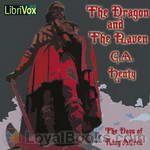 The Dragon and the Raven
The Dragon and the Raven
During the reign of King Alfred, Danish forces have invaded the English countryside. Although the English try to repulse these attacks, they are overrun by the savagery and sheer numbers of the Danes.One of those deeply touched by these attacks is young Edmund. As a boy, he watched as his father was slain in battle fighting the Danes. Although young, he was intelligent, and noted the mistakes made on the battlefield. As he grew into a man, he put that knowledge into use and created a uniquely trained group of soldiers and built a new, stronger ship called the Dragon... | |
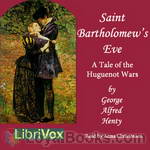 St. Bartholomew's Eve
St. Bartholomew's Eve
Set in the days of the religious wars of Europe, St. Bartholomew’s Eve is the tale of the Huguenot’s desperate fight for freedom of worship in France. As the struggle intensifies the plot thickens, culminating in the dreadful Massacre of St. Bartholomew’s Eve. Henty, “The Boy’s Own Storyteller” weaves the life and adventures of Philip Fletcher and his cousin, Francois DeLaville, into the historical background with thrilling battles, sieges and escapes along the way (not to mention a fair damsel in distress!). | |
 The Tiger of Mysore
The Tiger of Mysore
During the Indian war with Tippoo Saib, 15 year old Dick Holland and his mother set out from England to find and rescue his father, shipwrecked 6 years earlier, and believed to be held prisoner by the 'Tiger of Mysore'. | |
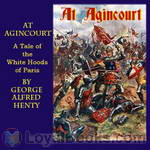 At Agincourt - White Hoods of Paris
At Agincourt - White Hoods of Paris
The story begins in a grim feudal castle in Normandie. The times were troublous, and soon the king compelled Lady Margaret de Villeroy, with her children, to go to Paris as hostages. Guy Aylmer went with her.Paris was turbulent. Soon the guild of the butchers, adopting white hoods as their uniform, seized the city, and besieged the house where our hero and his charges lived. After desperate fighting, the white hoods were beaten and our hero and his charges escaped from the city, and from France. (Summary from the original back cover) | |
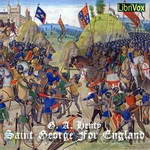 St George for England
St George for England
A tale set in England in the time of Cressy and Pointiers. A child of noble birth whose parents have fallen foul of the current royalty is taken by his dying mother and placed in hiding. He grows up with a bowyer and then apprenticed to an armourer just outside the gates of the City of London, becomes accomplished in arms and joins the campaign in France.A tale of heroism and 14th century viciousness. Great fun. | |
 By Pike and Dyke
By Pike and Dyke
It is the 1570's, and the people of the Netherlands live in terror under the cruel dominion of Spain. Though many long to be free of Spanish tyranny, efforts at rebellion are failing, and allies are nowhere to be found. Edward “Ned” Martin, son of an English captain and a Dutch lady, is thrust into the conflict when he resolves to help his mother’s people and avenge his murdered relatives. Entering the service of the revolutionary leader William the Silent, Prince of Orange, Ned is called upon to carry out dangerous secret missions deep within occupied territory... | |
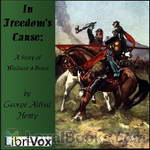 In Freedom's Cause
In Freedom's Cause
Another stirring tale from the master of historical fiction set in the time of Robert Bruce and William Wallace and their struggle for Scotland's independence. | |
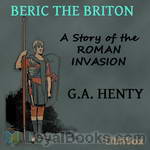 Beric the Briton - A Story of the Roman Invasion
Beric the Briton - A Story of the Roman Invasion
My series of stories dealing with the wars of England would be altogether incomplete did it not include the period when the Romans were the masters of the country. The valour with which the natives of this island defended themselves was acknowledged by the Roman historians, and it was only the superior discipline of the invaders that enabled them finally to triumph over the bravery and the superior physical strength of the Britons. The Roman conquest for the time was undoubtedly of immense advantage to the people -- who had previously wasted their energies in perpetual tribal wars -- as it introduced among them the civilization of Rome... | |
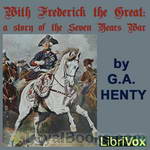 With Frederick The Great: A Story of the Seven Years' War
With Frederick The Great: A Story of the Seven Years' War
Among the great wars of history there are few, if any, instances of so long and successfully sustained a struggle, against enormous odds, as that of the Seven Years' War, maintained by Prussia--then a small and comparatively insignificant kingdom--against Russia, Austria, and France simultaneously, who were aided also by the forces of most of the minor principalities of Germany. The population of Prussia was not more than five millions, while that of the Allies considerably exceeded a hundred millions... | |